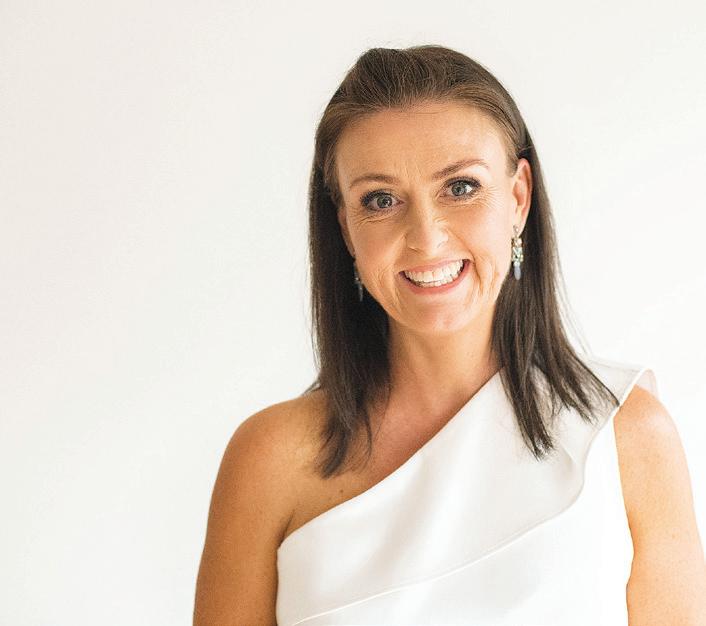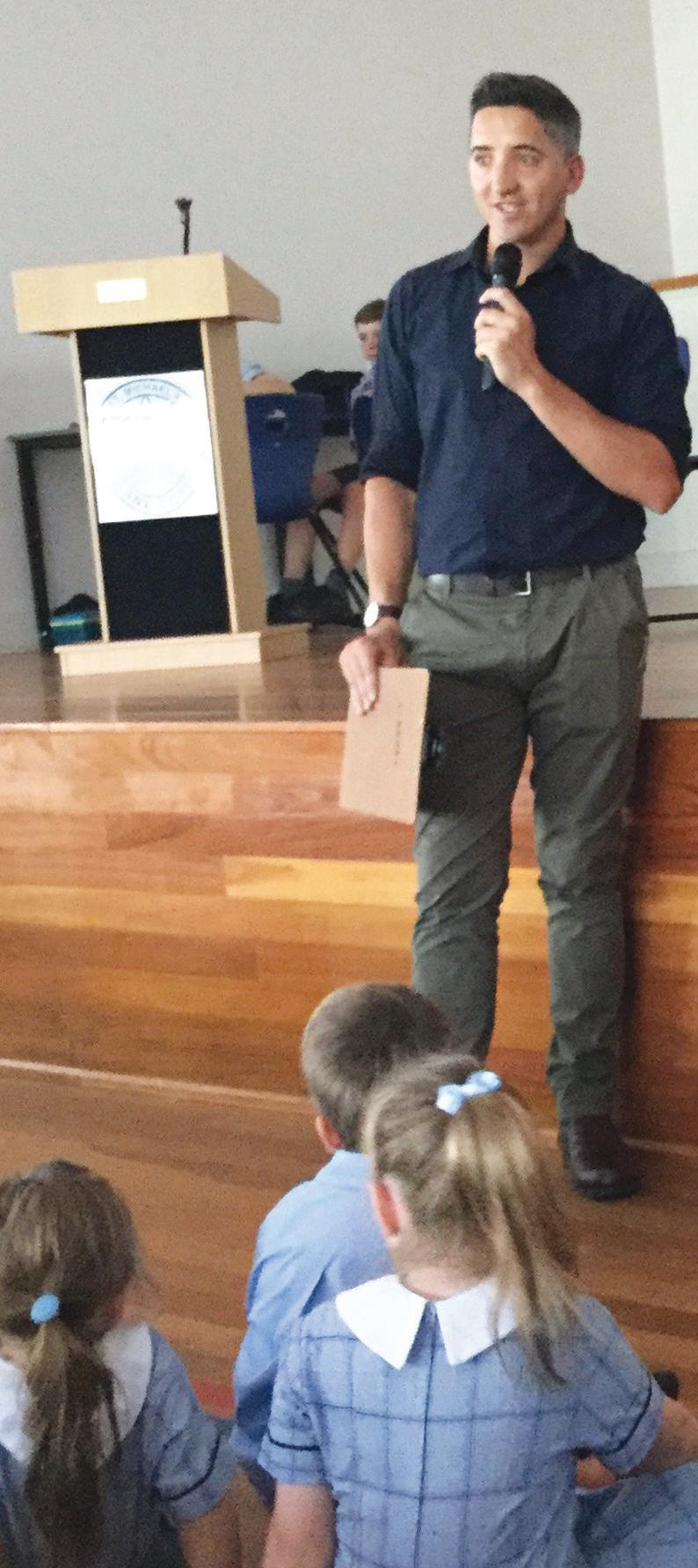
7 minute read
Keeping our kids’ positive
With mental health issues amongst young people on the rise, more support programs are being introduced to enable kids, and their parents, to better understand themselves and each other. By Jocelyn Biddle
According to beyondblue, around one in seven Australian kids experience mental health issues at some stage, with about half of all serious mental health issues in adulthood beginning before the age of 14.
In recognition of this growing incidence, the federal government recently committed $100 million in funding for school mental health programs.
This includes over $45 million to go to beyondblue for its integrated school-based Mental Health in Education initiative. This new national program encourages good mental health and wellbeing practices for Australian children from early learning centres to the end of secondary school.
The funding will also enable the establishment of new headspace centres to help support Australian kids.
According to Jason Trethowan, CEO of headspace, the National Youth Mental Health Foundation, ensuring that our young people have access to youth friendly mental health services is just one part of the puzzle.
“It’s imperative that young people learn ways to look after their mental health and have trusted adults they can reach out to if they’re feeling distressed or overwhelmed. It requires ongoing investment and the responsibility lies with the whole community – health professionals, friends, parents, schools and government.”
At a local level, there is one woman who is addressing this need head on through a program that she has developed to build mental strength amongst primary school aged children.
Lane Cove’s Jacqui Jones has taken her background in social work, and her experience as mother of two primary school aged children, and developed a self-leadership and wellness program for young people that combines the latest ideas and research in mindfulness meditation, positive psychology and building resilience in young people.
The six-week program is called ‘Greatfulness’, and has been linked to the NSW Department of Education’s Personal Development, Health and Physical Education (PDHPE) syllabus for years K-6.
“The purpose of the Greatfulness program is to give young people the knowledge and understanding they need so that they can proactively manage their own mental health.
TIPS TO HELP YOUR CHILD BECOME ‘MENTALLY FIT’
l Create a ‘greatitude jar’ – one of the tools that Jacqui introduces in her program is asking students to fill a jar with positive events, memories, affirmations and compliments. This jar becomes a special collection of ‘confidence builders’ throughout the year.
l Narelle recommends that if your child is thinking negatively, help them to challenge those thoughts by reconnecting with positive emotions.
Encourage them to think of the alternative, by recalling a time when they were happy. Ask how that made them feel?
l Each bedtime, sit with your kids and ask them to recount a) one good thing that happened today, and b) one good thing that they did for someone else. Jacqui explains that this helps kids to mentally shift to focussing on what’s going right in their lives.
l We can disempower our kids by providing help too early, which can prevent them from finding out who they are for themselves.
Narelle explains that it’s a fine line between ‘helpful helping’ and ‘unhelpful helping’. Rather than paving the way for our kids, act as more of a safety net.
Jacqui Jones is working with school students to help them proactively manage their own mental health.
Over the past 10 months, Jacqui has been single-handedly delivering the program to students in primary schools around Sydney.
In preparation for high school, Year 6 students at St Michael’s Catholic Primary School in Lane Cove went through the course late last year.
Class teacher Steve Pryde said that the course was ‘right on the money’, providing students with tangible strategies that enabled them to understand and become the best version of themselves.
During the Greatfulness program, students learn greater emotional regulation, increase their creativity and help equip themselves with practical tools to face future challenges.
The program has been endorsed by Kids Matter, an Australian Primary Schools mental health initiative and is now being expanded for years 1 to 4. Jacqui is also developing a teacher training course so that teachers can implement the complete Greatfulness program within their own school.
Jacqui says that there is more need than ever for this type of program.
“As the world is getting busier and busier, kids need to understand that happiness comes from within. With social media and technology, kids are often looking outside for happiness.
Jacqui says that the program is all about giving kids the tools “to look for good”.
“There are times when we all have challenging thoughts or feelings. But these thoughts come and go – they’re impermanent – so rather than pushing them away, sit with those thoughts and let them pass, rather than becoming attached to them.
Local resident Narelle Gillies works with older students in her private practice as a counsellor and psychotherapist. She reinforces Jacqui’s sentiments in terms of making kids understand that life isn’t perfect.
“Life is not always going to be fair – sometimes there is no good in a situation, so we need to empower our young people to accept and understand this fact.
“There’s so much hype around ‘achieving’ and being ‘happy’. Kids need to give themselves permission to not feel OK at times. They need to understand that there’s nothing wrong with feeling sad or down from time to time and that it’s just another emotion.
Narelle also believes it’s important to start conversations early to raise selfawareness within your child.
“Children need to understand that they don’t need to be like everyone else – knowing themselves from a young age is so important because once puberty happens, the peer group can become so influential.
“The added influence of social media means that there is a risk of kids constantly comparing themselves with others. It builds this pressure that they’re potentially not up to par. This lack of privacy, combined with the fact that there is increasingly less downtime, particularly as activities that we used to do for fun now often have a level of competition associated with them, has created a pressured environment for kids.
“It’s up to parents to really take control of that space by making sure that their kids’ do have downtime. Parents can’t underestimate their part as role models in their child’s mental health. With the best intentions, we all have our blind spots, so we have to be open to looking at ourselves through this parenting journey,” says Narelle. n

Steve Pryde, teacher at St Michael’s Primary School, says that the Greatfulness program is providing kids with strategies on how to use their strengths to get through difficult situations.
COURSES IN MAY
Jacqui and Narelle are both offering courses in May for local residents
‘Understanding you and your teen’ workshop:
Narelle is offering a FREE WORKSHOP for TVO readers who are parents of teenagers. Book early, spaces limited!
WHEN: Friday 11th May, 10:00-11:30am WHERE: Awareness Institute, 28 Chandos Street, St Leonards BOOKINGS: Email
narellegillies@bigpond.com
or phone 0431 594 141.
Greatfulness program:
Aimed at students in years 5, 6 and 7, Jacqui will be running this course over a 6-week period to help inspire kids to be their best and reach their full potential.
WHEN: 5-6pm, Monday evenings from 10th May – 14th June
WHERE: Sydney Speech Clinic, Suite 18, Level 1,102-104 Longueville Road COST: $200 per student
BOOKINGS: www.trybooking.com/356470
For further information, please email








